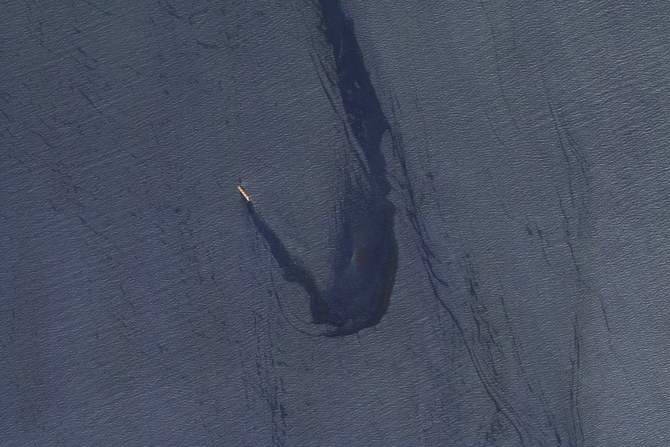WASHINGTON – A dire situation is unfolding in the Gulf of Aden as the Rubymar, a Belize-flagged cargo ship, faces the aftermath of a missile strike by Iran-backed Houthi rebels. The ship, registered in the UK and operated by a Lebanese company, was carrying over 41,000 tons of combustible fertilizer when it was attacked on Sunday.
The attack caused significant damage, with one missile hitting the ship’s side, leading to water entering the engine room and the stern sagging. A second missile struck the deck, causing less damage. The crew was successfully evacuated to Djibouti, but the ship is now taking on water and has left an 18-mile oil slick, creating an environmental disaster.
US Central Command expressed concerns that the situation could worsen, emphasizing the potential for the fertilizer spill into the Red Sea. The Rubymar is currently anchored, but the slow intake of water raises fears of a potential sinking. Blue Fleet Group, the ship’s operator, mentioned the possibility of towing it to Djibouti later this week.
This incident marks the most significant damage to a commercial ship since Houthi rebels initiated attacks on vessels in November. The rebels claim solidarity with Palestinians in Gaza during the Israel-Hamas conflict. The attacks have led some shipping companies to detour around southern Africa to avoid the Red Sea, impacting global maritime trade.
The UN Conference on Trade and Development reported a more than 40% decrease in the volume of commercial traffic through the Suez Canal in the previous two months due to Houthi attacks, further highlighting the far-reaching consequences of this escalating conflict on international trade routes.


